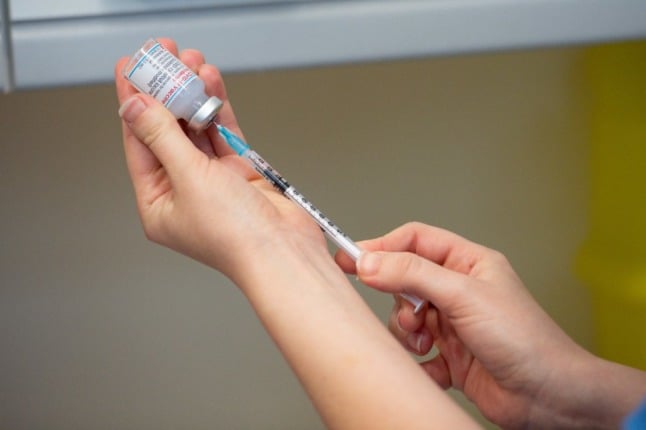Currently, the vaccine manufactured by Pfizer / Biontech is authorised for people 16 and over.
For those between 12 and 15, Pfizer submitted an application for approval to Switzerland’s regulatory body, Swissmedic, which is reviewing the application in the rolling procedure.
It is not yet known when the vaccine will be authorised for younger age groups, but the Federal Office of Public Health (FOPH) has already said that when it does become available, 10-year-olds will be able to decide for themselves whether to get immunised without having their parents’ permission.
This information comes from a letter FOPH wrote at the beginning of May, which was re-printed last week by a Swiss news platform, nau.ch.
In this letter, addressed to the cantonal health directors, medical associations, and other health organisations in Switzerland, FOPH noted that the ability to make sound judgments doesn’t depend on whether the person has attained the age of majority.
“In order for a child or adolescent to be considered capable of judgment with regard to the vaccination, he or she must be able to assess the consequences of the intervention”, FOPH wrote.
If a 10-year-old is capable of judgement, parental permission for the vaccine is not required and, in fact, the child can be vaccinated against the parents’ wishes, FOPH concluded.
READ MORE: When will Switzerland start vaccinating children?
Regina Aebi-Müller, law professor and at the University of Luzern and member of the ethics committee of the Swiss Academy of Medical Sciences, said that while 10-year-olds may not be able to make medical decisions if the side effects a treatment are potentially severe “in other cases this ability is affirmed much earlier”.
In the case of a Covid-19 vaccination, which must have very few side effects in order to be approved in Switzerland, the ability to make decisions should be granted to well-informed 10-year-old children, Aebi-Müller said.
“In such a case, the child can independently register for a vaccination with a specialist who can assess their judgment – such as the family doctor or paediatrician”, she added.
Another expert, Nikola Biller-Andorno, director of the Institute for Biomedical Ethics and Medical History at the University of Zurich, said that judgment must be assessed on a case-by-case basis.
Nevertheless, Biller-Andorno thinks it is conceivable that children over the age of 10 can be vaccinated against their parents’ wishes.
However, she pointed out that “health professionals seek dialogue with parents whenever possible and aim for a consensus”.
READ MORE: IN NUMBERS: How Switzerland’s vaccination rollout is slowly picking up speed



 Please whitelist us to continue reading.
Please whitelist us to continue reading.
Member comments